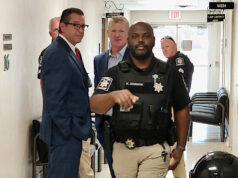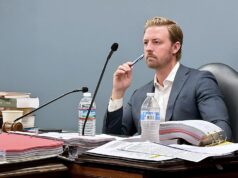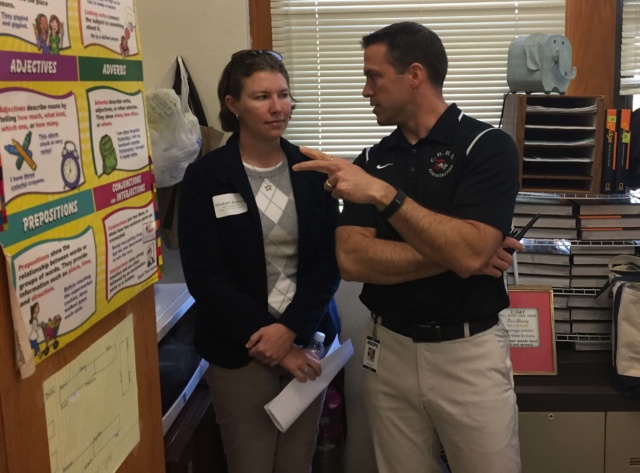

For Adam Jewell, in his second year as the head principal at Capitol Hill Hill School, a routine work day begins at 6 a.m. On one such particular day, he anticipated getting home after 10 p.m. due to an after-school activity. Everything in between could make the difference for the students at this south-side Oklahoma City school that first opened its doors in 1928.
Capitol Hill was one of the school sites chosen for Principal for a Day, a program sponsored by the Foundation for Oklahoma City Public Schools. The event was set up to provide an opportunity for members of Leadership Oklahoma City to “shadow” a principal as they tended to their daily duties.
Principal: Budget cuts ‘less than ideal and hardly sustainable’
One of the cold, harsh realities of being in education during this age of annual budget reductions in Oklahoma is that teachers, administrators and support staff working in public schools are being asked to continue doing more for much less than their counterparts in other states. Oklahoma has historically been near the bottom in public education funding and was among only 19 states reducing education funding last year. State aid for Oklahoma schools was 26.9 percent lower last year than just eight years prior.
Jewell said the continuous cutting of education budgets is taking a toll and creating next-to-impossible choices for administrators. With Oklahoma City Public Schools having to cut $30 million this past year, the effect on Capitol Hill was elimination of the textbook and athletics budgets, cuts to the arts and library media budgets, and elimination of eight teaching positions.
“It’s less than ideal and hardly sustainable,” Jewell said.
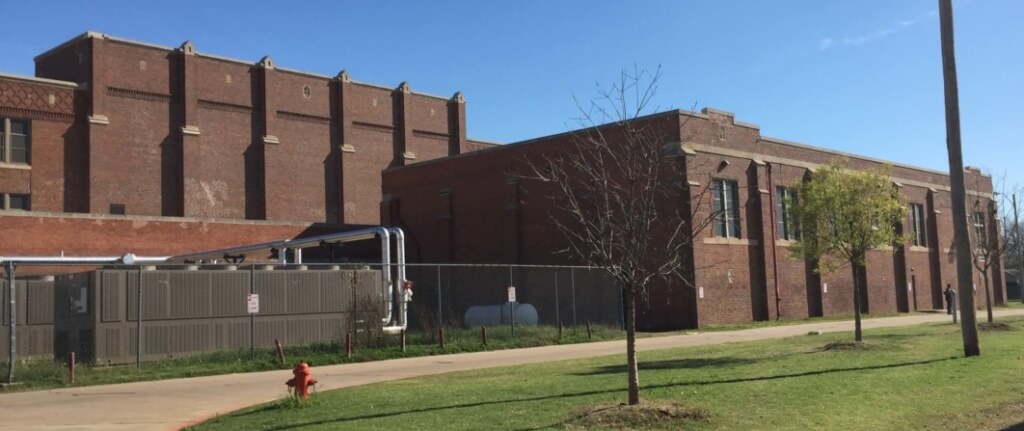
Superintendent Lora: Cuts create ‘heartbreaking choices’
Public school administrators are being asked yet again to dig in and do more with less as they begin planning for the 2017-2018 school year. OKCPS Superintendent Aurora Lora has been handed the possibility of another $16.5 million in cuts following a vote of the people rejecting a pay raise for teachers last November. School closings, teacher reductions and slashed budgets have all been on the table.
“These are heartbreaking choices,” Lora said. “It kills me to think about piling more onto the backs of our teachers.”
One area that has seen cuts in the past has been the arts, but Jewell said he has emphasized keeping those electives available for his students as much as possible. He said last year he ended up cutting nine core positions and adding a vocal-teacher position. This year, he said the classroom needs would dictate where the cuts would be made.
Staff, students illustrate how some good remains
Elected officials seem to be split or, at least, remain unconvinced that all the blood has been squeezed out of the turnip that is Oklahoma’s public education system. At the beginning of each calendar year, funding education is the No. 1 priority going into the legislative session. Each May, however, education is asked to either take more cuts or at least be funded inadequately.
David Dirkschneider of commercial real estate firm Price Edwards was among the group selected to take the Capitol Hill tour. Dirkschneider said a negative perception of OKCPS preceded his tour.
Such negative perceptions of Capitol Hill didn’t happen overnight. The school has had some problems despite the positives that have taken place in recent years. Jewell said the school has managed to keep the school mostly free of violent incidents — minus an alleged sexual assault earlier this year — since an allegedly gang-related fight in January 2016.
Dirkschneider said he saw positive interactions between vice-principal Marie Howard and other administrators, teachers, parents and students. He said he also was impressed with how she conducted her daily business and how she worked with the circumstances presented to her. Similarly, Jewell praised his vice-principals, staff and teachers at the school.
While teacher retention has been a problem for a number of Oklahoma schools, Jewell said it has also been a priority for him to identify the teachers that best fit what he wants to accomplish.
“If you’re good for kids, I’m going to keep you around,” Jewell said.
Access to technology represents one of the positives that exists for OKCPS students through Chromebooks made available in the classroom. Wi-Fi is also available for free at Capitol Hill, and the students take advantage of it to assist with their classwork. Jewell said it is a great benefit for the students, many of whom are showing strong abilities when it comes to using online tools.
“When it comes to technology, these kids are really, really smart,” Jewell said.
At the woodshop class, Jewell was eager to brag about not only the individual work of the Capitol Hill students but also the group achievements of the robotics team. He said he wished he could see more of those types of stories in the media.
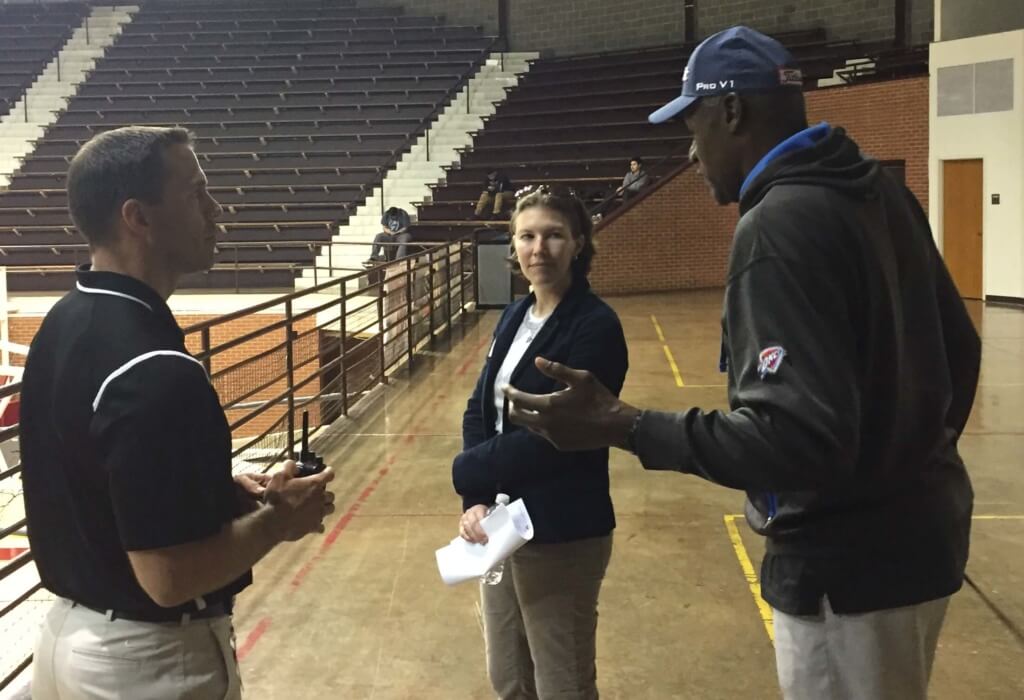
Unique challenges face Hispanic majority
Mary Mélon, president of the Foundation for Oklahoma City Public Schools, said the current political climate is also hurting the district’s environment.
Facing more budget cuts and dealing with modern problems that include immigration, gangs and other pressures typically prominent at inner-city schools, the OKCPS is bracing for another annual request to take a step backward in the kids’ educations. For Mélon, this request is unacceptable.
“The only choices are bad choices,” Mélon said when speaking to the Leadership Oklahoma City members who attended the event. “It has to stop. We have to get stable funding for our schools.”
Whether it was parents working multiple jobs or even being deported — 52 percent of OKCPS’s more than 46,000 students are Hispanic — or possibly just not being around for various reasons, students face concerns often unknown to students in rural or suburban districts. With so much fervor being directed toward sending illegal immigrants back to their countries of origin, many Hispanic students in the district face unique fears every time they leave for school.
“They’re going to go home and their parents are going to be gone,” Mélon said.
Pressure to fail represents another of the many issues facing the district’s students. Some families are expecting their kids to work to help support the family. They are less concerned about the kids finishing school. Other kids face pressures from those outside the classroom to get involved with lifestyles that include drugs, prostitution and other illegal activities.
One student Jewell bragged about had shown some exceptional abilities when it came to engineering, but the parents were expecting him to work at the family business rather than attend college. Eventually, the student proved to be a success story, Jewell said, but it was an example of the lack of family support that many OKCPS students face when attending class. Kids being raised in suburban schools, for example, routinely grow up with a different mindset in their families when it comes to preparing for college.
“Generationally and culturally, that’s not there,” Jewell said of the kids at his school.
Last, OKCPS students have the opportunity to attend college at Oklahoma City Community College tuition-free. Dozens take advantage of it, but hundreds don’t. Jewell said one of the reasons is that students have a different mindset when it comes to attending college.
“A lot of kids are scared of success,” Jewell said.
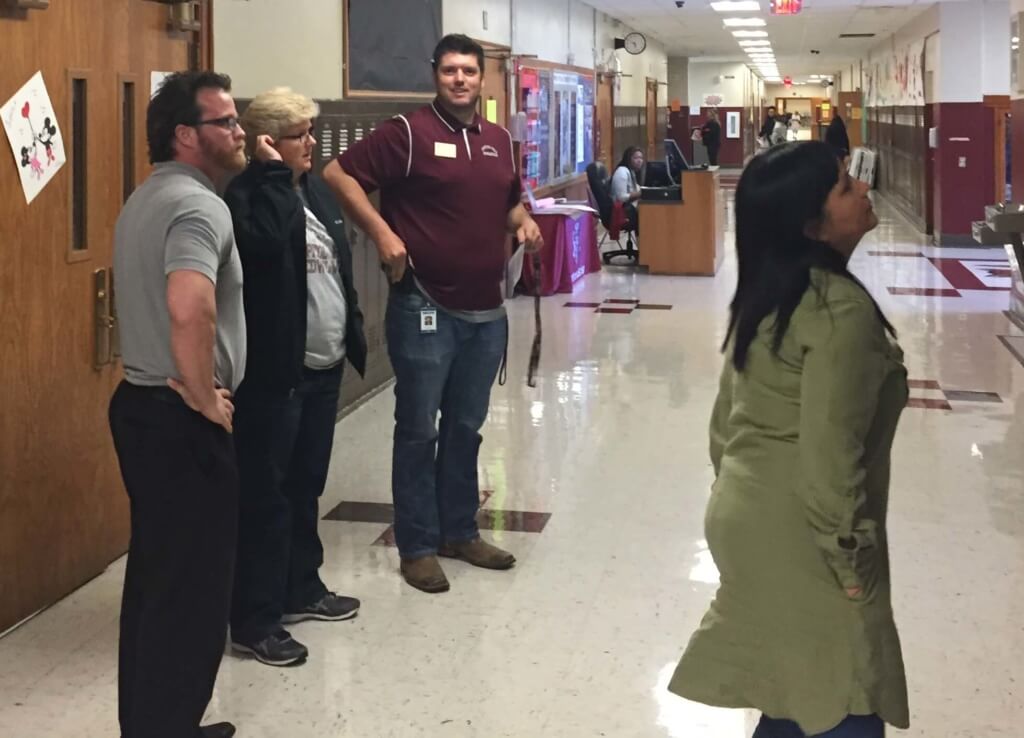
A call for more community involvement
Elizabeth Anthony of Reel Classics, who was among the group touring Capitol Hill, said it was problematic when the community wasn’t stepping up and showing appreciation for the value that a quality education could have on kids’ lives.
“That’s something that money’s not going to fix,” Anthony said.
In schools like Capitol Hill, the prevailing attitude is often for the kids of carpet layers and restaurant workers to follow in the footsteps of their parents. Anthony said it was important to begin setting aspirations for the students so that they can believe they can become doctors or lawyers. She suggested having people who had experienced that level of success taking a more prominent role in the lives of these kids.
“We need to put alternative role models in front of them,” Anthony said.
Dirkschneider said with these schools going the wrong direction because of funding problems, businesses needed to do their part. He said some of the bigger companies in Oklahoma City need to show a strong monetary commitment to helping make a difference in kids’ lives.
“They’ve got money when they feel it is a worthy cause,” Dirkschneider said.
The Foundation for Oklahoma City Public Schools is also encouraging businesses to be a bigger part of helping the struggling school district. With its Partners in Action program, local companies can partner with the district.
Mélon said it is not a time to focus on other priorities or to remain silent on the issue. With so much at risk and the problem only getting worse, she encourages everyone to make their voice heard and do what was right for OKC’s kids.
“Right now is the time to be speaking up,” Mélon said. “Until [funding] is solved, this is going to be a vicious cycle.”













